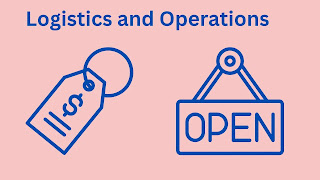Introduction
The skill of organizing and carrying out events, from intimate get-togethers to massive festivals, is known as event planning and management. To guarantee that the event runs well and lives up to the expectations of the host and guests, it entails supervising every part of it, from ideation to post-event analysis.
The management of logistics, including venue selection, vendor management, budgeting, and promotion, falls within the purview of event planners. Careful preparation, close attention to detail, and effective project management are necessary for a successful event. Planning and managing an event with the intention of making it memorable and satisfying for everyone involved.
event planning business
A firm that specializes in planning and arranging parties, such as weddings, special events, family events, and other special occasions, is known as an event planning business. An event planner may be in charge of making venue reservations, organizing guest lodging and transportation, liaising with suppliers and vendors, controlling spending, making event schedules, and supervising setup and cleaning. With the help of their customers, event planners often create a plan for the event by first getting to know their wants and preferences. They then use their knowledge and resources to make that vision a reality.
Conceptualization and Planning:
The process of event planning and management begins with conceptualization and planning. It entails choosing the type of event, picking the goals and objectives, and setting a schedule and budget.
Key elements of conception and planning include the following:
- Establish the Event Goals and Objectives: This entails stating the event's purpose and the host's objectives.
- Choose the Event Type: This entails deciding on the appropriate event style, such as a conference, concert, trade exhibition, or gala.
- Establish the Budget: This entails calculating the overall expense of the event and assigning money for different components including venue rental, catering, and promotion.
- Establish a Timeline: This entails making a thorough calendar of the occasion that includes important turning points and due dates.
Venue Selection:
The process of locating and choosing a location for an event is known as venue selection. The venue sets the tone for the whole event and influences many other variables, including the guest experience, logistics, and budget, making it one of the most crucial areas of event planning and administration.
The following actions are crucial in choosing a location:
- Establish the Requirements: This entails deciding on the type, size, and location of the ideal venue as well as its amenities and accessibility.
- Research and Evaluation of Potential Locations: This entails looking for locations that fit the bill and assessing them for things like price, availability, and suitability.
- Contract negotiations: This includes speaking with the venue to agree on the details of the arrangement, such as rental fees, periods for setup and breakdown, and any additional services or equipment required.
- Confirm logistics: This entails making sure that the location has all the required amenities, including restrooms, parking, and power, and that it is accessible for visitors with disabilities.
Vendor and Supplier Management:
Vendor and Supplier Management entails choosing suppliers and working with them to coordinate an event's demands. It is a crucial component of event planning and management because vendors and suppliers are essential to the event's success.
The essential steps in the vendor and supplier management process are as follows:
- Identifying the products and services needed for the event, such as food, décor, and audio-visual equipment, is known as determining its needs.
- Vendor and supplier research and evaluation entails looking for and assessing potential partners based on aspects including price, reputation, and accessibility.
- Negotiate Contracts: This entails talking over the parameters of the agreement, such as the cost, delivery schedule, and setup of goods and services, with the suppliers and vendors.
- Coordination of logistics include making sure that the suppliers and vendors are informed about the logistics of the event, such as delivery schedules and parking arrangements.
- Manage Relationships: This entails keeping in touch with the suppliers and vendors throughout the event and resolving any problems that may occur.
Marketing and Promotion:
The process of developing and carrying out a marketing strategy to raise knowledge of and attendance at an event is known as marketing and promotion. It is a crucial component of event management since it makes sure that the event reaches its intended audience and accomplishes its objectives.
The essential steps in the marketing and promotion process are as follows:
- Identify the demographics and interests of the people the event is aiming to attract by defining the target audience.
- Create a marketing plan: This entails coming up with a plan for promoting the event using strategies like advertising, email marketing, and social media.
- Execute the Marketing Plan: This entails carrying out the marketing strategy, including the production and distribution of marketing collateral, the start of social media campaigns, and the distribution of email newsletters.
- Monitoring and Evaluating the Results: This entails keeping tabs on the efficacy of the marketing initiatives and modifying the plan as necessary in light of the outcomes.
Logistics and Operations:
Managing all the operational facets of an event to make sure everything works properly is known as logistics and operations. It is a crucial component of event planning and administration since it addresses every detail required to ensure the event's success.
The crucial actions in the logistics and operations process are as follows:
- Create an operations plan: This entails coming up with a thorough plan that describes the duties, timelines, and tasks required to carry out the event.
- Coordinate Logistics: This entails overseeing all of the event's logistical needs, including parking, signs, transportation, and security.
- Manage Event Personnel: This entails working with event staff, such as volunteers and vendors, to make sure they are knowledgeable about and prepared to carry out their duties.
- Manage On-Site Operations: This entails managing the event on-site, which includes keeping an eye on every part of it, resolving issues, and making adjustments as necessary.
- Reviewing the event after it has taken place to determine its success and pinpoint areas that need improvement is known as evaluating the event.
Budget Management:
The process of preparing, monitoring, and regulating the financial resources needed for an event is known as budget management. It is a crucial component of event planning and management because it ensures that resources are spent efficiently and the event is financially viable.
The essential steps in the budget management process are as follows:
- Create a Budget Plan: This entails putting together a thorough budget that covers all of the costs associated with holding the event, such as venue rental, catering, and marketing.
- Track Expenditure: To make sure the event stays within its financial restrictions, track all event-related expenses and compare them to the budget plan.
- Control Costs: This entails modifying the budget plan as needed to keep the event within its financial restrictions and make efficient use of resources.
- Manage Contingencies: This entails setting up a plan for unanticipated costs, such as bad weather, last-minute cancellations, or other unforeseen incidents.
On-Site Management:
The technique of overseeing and managing every part of an event on the actual event day is known as on-site management. It is a crucial component of event planning and management since it makes sure that everything goes according to plan and that the host and guests are satisfied.
The major actions in the process of on-site management are as follows:
- Setting up the event area, which includes placing tables, chairs, and decorations and making sure all the essential equipment is in place, is known as preparing the venue.
- Welcome, Participants! This includes welcoming visitors when they arrive, registering them, and pointing them in the right direction.
- Manage Vendors, Work With Event Staff, and Make Adjustments As Necessary: Managing Vendors, Working With Event Staff and Making Adjustments As Necessary are all Parts of Overseeing Event Operations.
- Manage Emergencies: This entails putting a plan in place for dealing with any unanticipated problems that might arise during the event.
- Reviewing the event after it has taken place to determine its success and pinpoint areas that need improvement is known as evaluating the event.
Post-Event Evaluation:
The practice of analyzing an event after it has taken place to determine its success and pinpoint opportunities for improvement is known as post-event evaluation. It is a crucial component of event planning and administration since it ensures the success of future events.
The major actions in the post-event review process are as follows:
- Gather Feedback: In order to have a thorough knowledge of the event, feedback should be gathered from participants, event workers, and other stakeholders.
- Analyze Data: To determine the event's success, all relevant data, including attendance, expenditures, and marketing efforts, are reviewed.
- Assess Success: This entails assessing if the event was successful in producing the desired results and in meeting its aims and objectives.
- Identify Potential Improvements: This involves identifying areas, such as operations, marketing, or logistics, where the event could be made better.
- Create an Action Plan: This entails coming up with a strategy for putting the enhancements found throughout the evaluation process into practice to make future events even more successful.
Conclusion
As a result, event planning and administration is a difficult process that involves many different aspects and calls for a variety of abilities, including project management, vendor coordination, budget management, marketing, and meticulousness. Event organizers may make sure that their events go smoothly and live up to the expectations of the host and attendees by adhering to a structured framework and paying close attention to each stage of the event planning process. Creating a pleasant and memorable experience for everyone involved is the ultimate goal of event planning and management, making it a crucial and lucrative career path for people with a passion for creating and carrying out effective events.










0 Comments